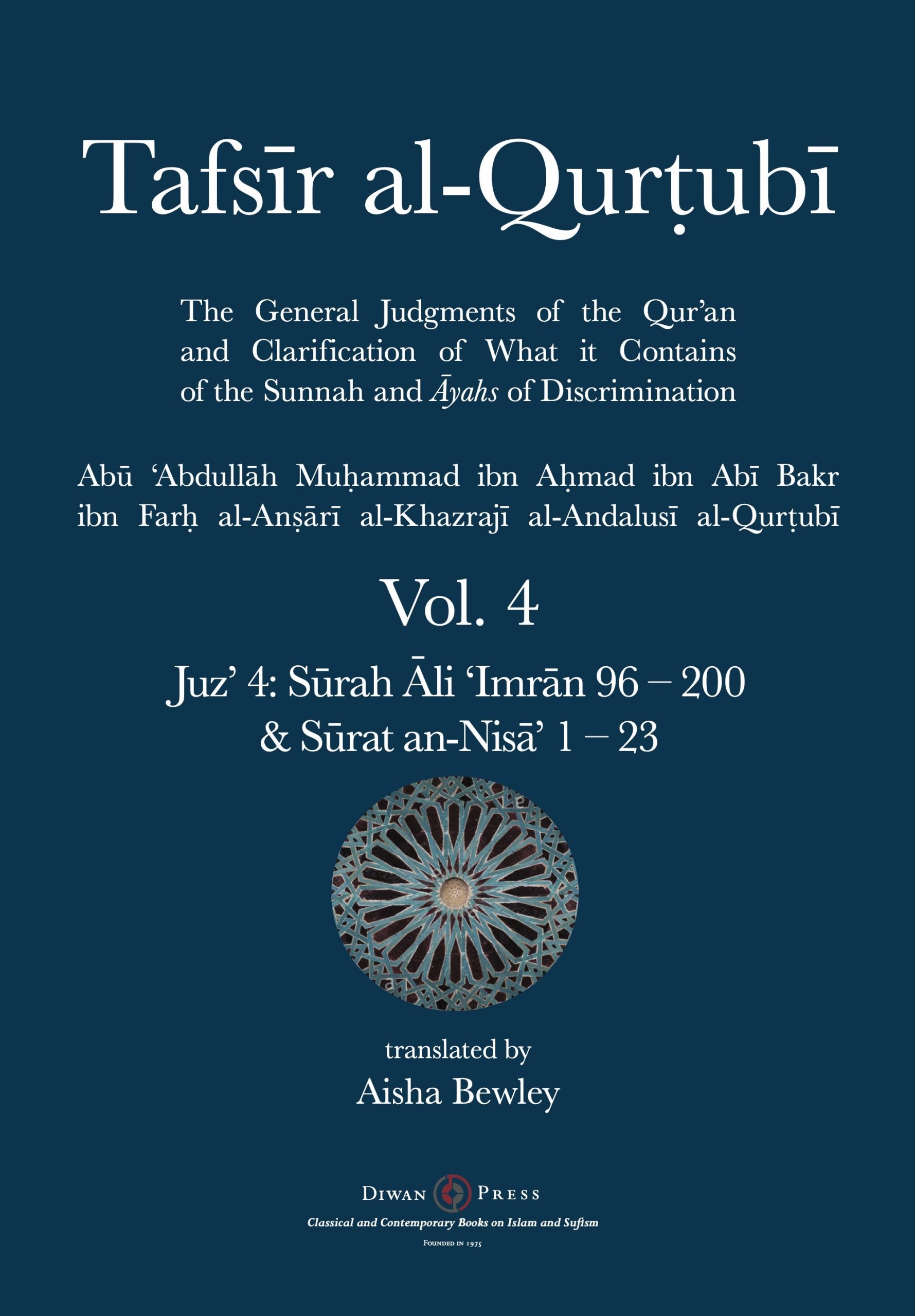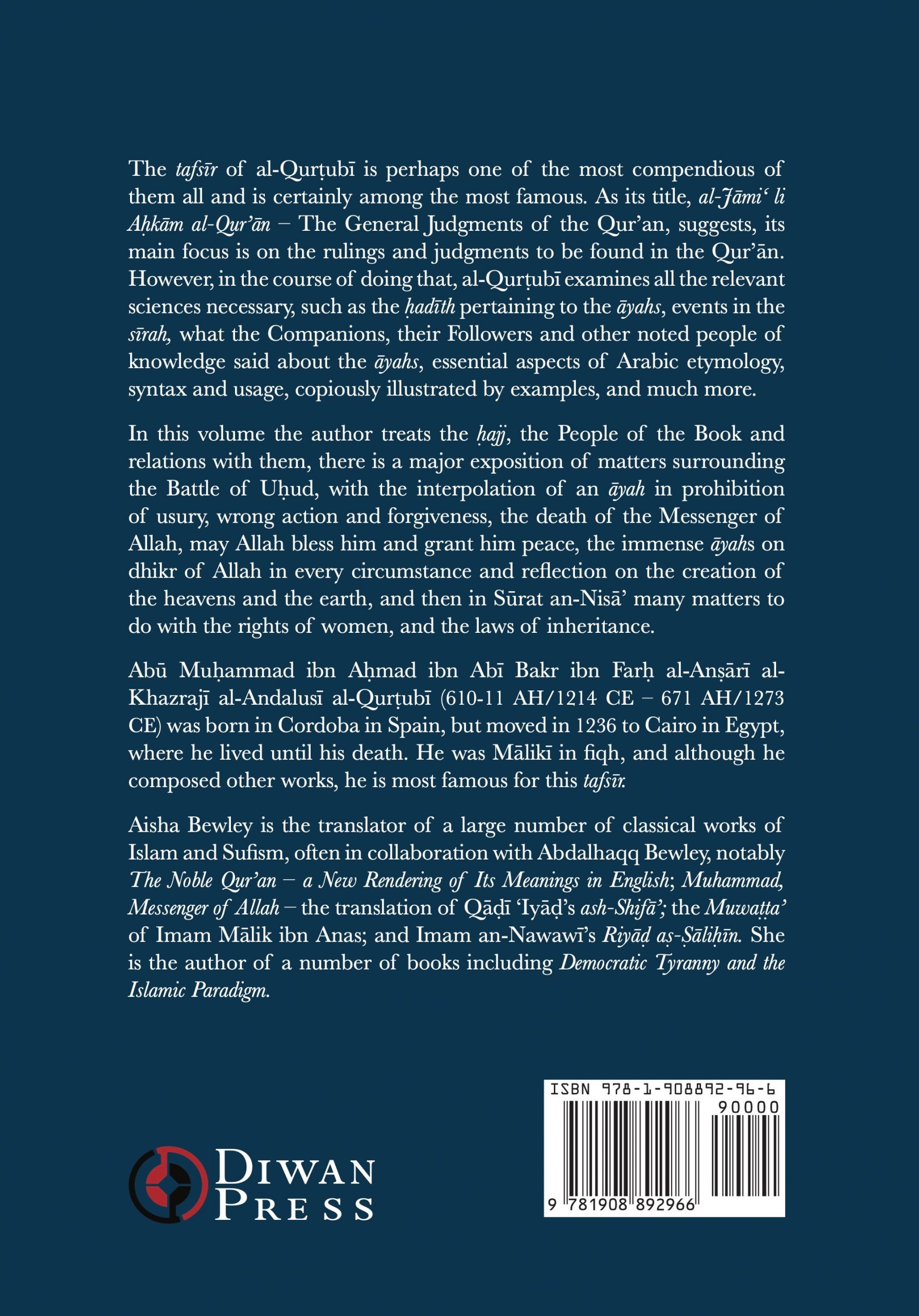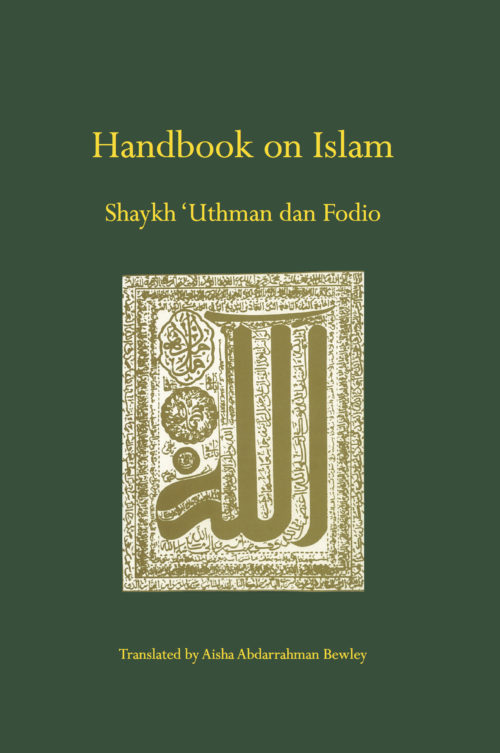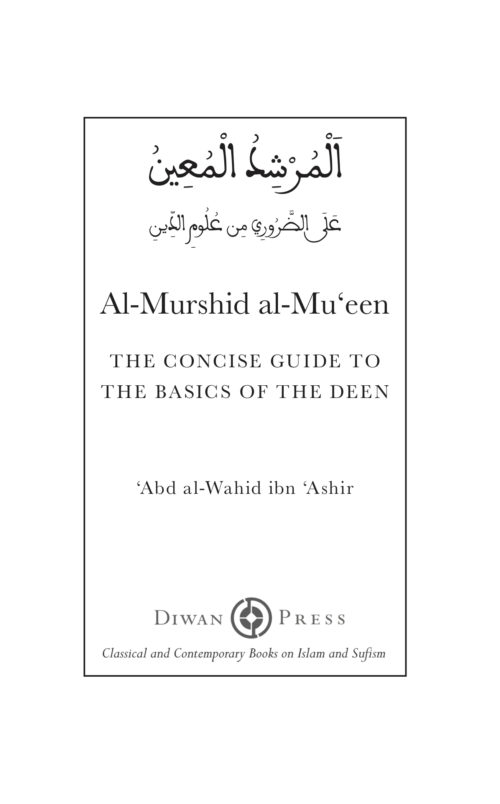Description
The tafsīr of al-Qurṭubī is perhaps one of the most compendious of them all and is certainly among the most famous. As its title, al-Jāmi‘ li Aḥkām al-Qur’ān – The General Judgments of the Qur’an, suggests, its main focus is on the rulings and judgments to be found in the Qur’ān. However, in the course of doing that, al-Qurṭubī examines all the relevant sciences necessary, such as the ḥadīth pertaining to the āyahs, events in the sīrah, what the Companions, their Followers and other noted people of knowledge said about the āyahs, essential aspects of Arabic etymology, syntax and usage, copiously illustrated by examples, and much more.
In this volume the author treats the ḥajj, the People of the Book and relations with them, a major exposition of matters surrounding the Battle of Uḥud, with the interpolation of an āyah in prohibition of usury, wrong action and forgiveness, the death of the Messenger of Allah, may Allah bless him and grant him peace, the immense āyahs on dhikr of Allah in every circumstance and reflection on the creation of the heavens and the earth, and then in Sūrat an-Nisā’ many matters to do with the rights of women, and the laws of inheritance.
17 x 24.4 cm. 284 pages
Abū Muḥammad ibn Aḥmad ibn Abī Bakr ibn Farḥ al-Anṣārī al-Khazrajī al-Andalusī al-Qurṭubī (610-11 AH/1214 CE – 671 AH/1273 CE) was born in Cordoba in Spain, but moved in 1236 to Cairo in Egypt, where he lived until his death. He was Mālikī in fiqh, and although he composed other works, he is most famous for this tafsīr.
Aisha Bewley is the translator of a large number of classical works of Islam and Sufism, often in collaboration with Abdalhaqq Bewley, notably The Noble Qur’an – a New Rendering of Its Meanings in English; Muhammad, Messenger of Allah – the translation of Qāḍī ‘Iyāḍ’s ash-Shifā’; the Muwaṭṭa’ of Imam Mālik ibn Anas; and Imam an-Nawawī’s Riyāḍ aṣ-Ṣāliḥīn. She is the author of a number of books including Democratic Tyranny and the Islamic Paradigm.








Reviews
There are no reviews yet.